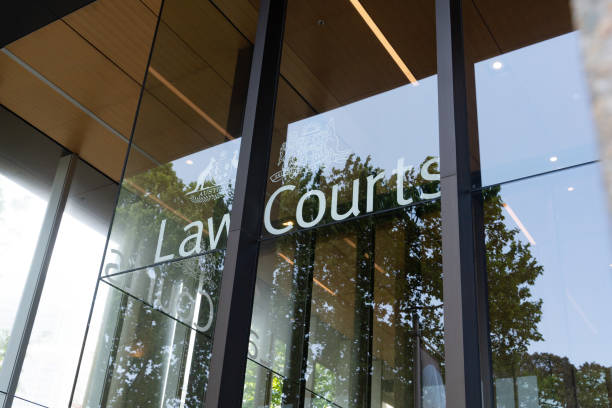
FAL
On 11 May 2022, Associate Justice Gardiner (Gardiner AsJ) of the Victorian Supreme Court delivered the first judgment regarding section 588FDB of the Corporations Act 2001 (Cth) in Re Intellicomms Pty Ltd (in liq) [2022] VSC 228 (Re Intellicoms).[1]
Section 588FDB
Section 588FDB was introduced into the Corporations Act by the Treasury Laws Amendment (Combatting Illegal Phoenixing) Act 2020 (Cth); the section aims to provide liquidators with greater power to ensure that the maximum funds available are available for distribution amongst unsecured creditors in liquidation and to combat illegal phoenix activity – where directors of a liquidated company form a new company to continue the same business without a debt.
The section took effect from 18 February 2020 and only applies to ‘dispositions’ made on or after this date. As pointed out at paragraph 6 of the judgment, there are currently no authorities dealing with its operation or which explain its meaning and scope.
The explanatory memorandum to the section explained illegal phoenix activity as the following:
While the scale of illegal phoenix activity ranges from the opportunistic to the systemic, a common characteristic is the stripping and transfer of assets from a company to another entity. Such transactions are carried out by a company’s directors or other controlling minds with the intention of defeating the interests of the first company’s creditors in that company’s assets.[2]
The memorandum goes on to explain that a creditor-defeating disposition is:
…a disposition of company property for less than its market value (or the best price reasonably obtainable) that has the effect of preventing, hindering or significantly delaying the property becoming available to meet the demands of the company’s creditors in the winding-up.
Re Intellicoms
In Re Intellicoms, illegal phoenix activity and creditor-defeating dispositions were alleged by the Plaintiffs due to the following:
- On the afternoon of 8 September 2021, Intellicomms Pty Ltd (in liquidation) (ACN 153 181 367) (Intellicomms) entered into a Sales Agreement with Technologie Fluenti Pty Ltd (Defendant) whereby the Defendant would purchase the assets of Intellicoms, novate its contracts and transfer and the employees and their entitlements to the Defendant.
- The assets in the Sales Agreement included the business records of Intellicomms, its goodwill, intellectual property, shares (defined as the issued shares of any class owned by Intellicomms in Intellicomms NZ, its wholly owned New Zealand subsidiary), office equipment and computers. In addition, computer hardware and mobile telephone numbers were to be assigned to the Defendant (collectively, the Assets).
- A short time afterwards on the same day, a meeting of Intellicomms was convened at short notice at the behest of its sole director, Ms Rebecca Haynes, and Intellicomms was placed into creditors’ voluntary liquidation. The Liquidators were appointed liquidators in the winding up.
- The Defendant was incorporated on 25 August 2021, two weeks prior to the appointment of the Liquidators. The sole director and shareholder of the Defendant is Ms Michelle Gigliotti, a sister of Ms Haynes. Prior to the sale, Ms Gigliotti was employed by Intellicomms as its financial and payroll administrator.
At trial, the ultimate question for consideration was whether the Liquidators had established that the amount payable under the Sale Agreement was less than the lesser of the market value and the best price reasonably obtainable for those assets within the meaning of s 588FDB, and, if so, whether the relief sought by the Liquidators should be granted.
During the lead up to the Sale Agreement, Ms Haynes arranged for several valuations of the business and its assets to be conducted. Each subsequent valuation provided that the business and its market value price were less than the previous valuation. In the years prior, Intellicoms had generated significant debts, including a substantial debt to its major creditor Callascan Pty Ltd, which trades as QPC (QPC).
Significant evidence was exhibited at trial to determine how each valuation was made, what information was provided to reach their conclusions and what assumptions were relied upon.
At paragraph 228, Gardiner AsJ held that:
the Sale Agreement has all the features of what has become known as a phoenix transaction; indeed, it is a brazen and audacious example. The effect of the Sale Agreement was to strip Intellicomms of what assets it had to satisfy the claims of its creditors and transfer them to an entity which was closely associated with its director, Ms Haynes. Shortly afterwards, Ms Haynes was instrumental in placing Intellicomms into voluntary liquidation with debts in excess of $3.2 million. No explanation was given as to why it was necessary to urgently sell the business rather than leave the process of the sale of what assets the company had to the Liquidators. Nor it seems was the regime of Part 5.3A of the Act explored and administrators appointed; in a similar way, the administrators, armed with the machinery of that part of the Act, could have conducted an orderly sale of Intellicomms’ assets for the benefit of its creditors.
As the essentially uncontroversial chronicle of the factual background reveals, Ms Haynes, apparently with the assistance of her advisors, de Jonge Read, executed a plan designed to place the assets of Intellicomms beyond the reach of its creditors. Over a relatively short period of time, Ms Haynes commissioned several valuations of Intellicomms. With each succeeding valuation, she provided those conducting the valuation with inputs which reflected an increasingly pessimistic outlook for the company, with the direct effect of decreasing the valuation. I am satisfied that Ms Haynes did so in order that she could arrive at a valuation which would minimise the consideration payable by TF [the Defendant], an entity which was established shortly before the execution of the Sale Agreement and the liquidation as a NewCo vehicle, arranging so that her sister as TF’s director and shareholder would give the appearance of Ms Haynes being once removed from TF. It seems that Ms Haynes’ motive for doing this was to prevent QPC, who was a shareholder and also Intellicomms’ largest creditor, from having the opportunity to purchase what assets Intellicomms had either from a liquidator or an appointed administrator.
Gardiner AsJ also emphasized that ‘during the lengthy phase where QPC and Intellicomms were negotiating a proposed debt capitalisation, there was no attempt by Intellicomms to put the sale to an open‑market, considering the second limb of s 588FDB (best price reasonably obtainable).’ [3]
In addition, the Defendants contended that in order for the Sale Agreement to be a creditor-defeating disposition, the plaintiffs must establish sufficient evidence upon which the Court can determine an actual monetary value as to each of the market value of the assets and the best price reasonably obtainable for the assets; moreover, in each case those actual values must be higher than the consideration payable to Intellicomms by the Defendant for the assets. Gardiner AsJ rejected this and held that:
In my view, the Liquidators are required to establish that, on the balance of probabilities, the consideration payable under the Sale Agreement was less than both of the limbs contained in s 588FDB.
Consequently, the Sale Agreement was held to be a creditor‑defeating disposition under s 588FDB and a voidable transaction under s 588FE(6)(B).
Key Take-Aways
The judgment demonstrates how liquidators’ powers have been expanded to render void transactions which are not arms-length; the Court is prepared to review all conduct leading up to a disposition in question, and all aspects of how that disposition came to be valued. The result is that company directors must be especially cautious in what steps they take to restructure a company or deal with a company that is or is beginning to look insolvent.
FAL Lawyers has extensive experience providing insolvency and restructuring advice to small and large companies. If you suspect you require advice for your company, please do not hesitate to contact our Insolvency Law team for a for a free consultation.
[1] GLENN JEFFREY FRANKLIN as joint and several liquidator of INTELLICOMMS PTY LTD (IN LIQUIDATION) (ACN 153 181 367) & ORS (according to the attached Schedule) v TECNOLOGIE FLUENTI PTY LTD (ACN 653 110 582) [2022] VSC 228
[2] Explanatory memorandum to Treasury Laws Amendment (Combatting Illegal Phoenixing) Bill 2019 (Cth) [1.3] (‘Explanatory Memorandum’).
[3] Paragraph 230
.png?width=675&height=338&name=Untitled%20design%20(8).png)
.png?width=100&height=50&name=Untitled%20design%20(15).png)
.png?width=800&height=800&name=Untitled%20design%20(57).png)


